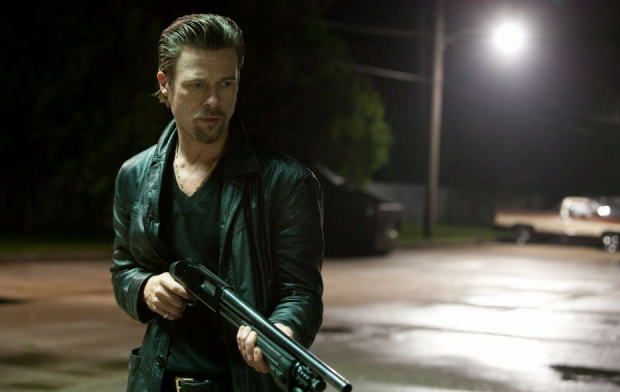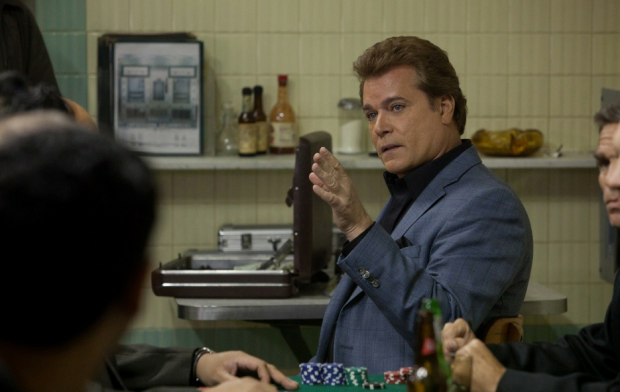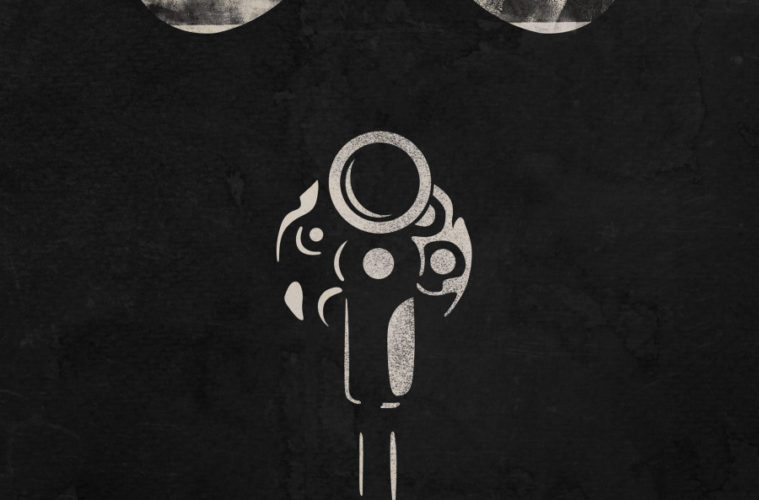Opening and ending with speeches about these United States and the sameness of our promised land, writer/director Andrew Dominik paints his America with blood and cash and well-worn leather. Brad Pitt stars as Jackie Cogan, a fixer of sorts brought in to handle a problem with a particular underground gambling racket. A well-liked man named Markie (Ray Liotta) runs the game, which is held up by a couple of rundown thugs (Scoot McNairy and Ben Mendelsohn). Unfortunately, this is the second time the game’s been taken, so the boys upstairs want answers. A man Cogan calls “counselor” (Richard Jenkins) serves as the middle man, aggravated at those he serves and how long it takes to get “the okay” for any kind of spending. It is a recession after all, and everyone’s operating at “recessions prices.”

In point and fact, Dominik’s Killing Them Softly is about the state of America and the economy that keeps its motor running. But who’s paying for that motor and where are we getting it from? Set in a Rust Belt-looking, once-industrial city where the primary service industry appears to be crime, Dominik, to no surprise, utilizes the camera to its full advantage. A bit more surprising, then, is the filmmaker’s superb use of sound editing, the abrupt, brutal sound mix complimenting his fluid camera moves beautifully, as illustrated in the film’s opening scene.
The plot is deceivingly standard. Nothing happens here that you haven’t seen happen before in other crime films. But then, much of what happens you haven’t quite seen before in other crime films, it just exists on the periphery or underneath the lines of dialogue or behind the framed-out movie star in the background. Consider the American flag draped in the back of a bar in one scene as Obama rouses a crowd (the film takes place during the now-Prez’s campaign) on a television at the edge of the frame. Or the most common setting in the film, inside a car. Americans do not take trains. We burn gas.

Pitt is a joy to watch here, taking his time with the character, waiting for the right moment to strike. This is Chili Palmer without the optimism, a criminal not tired of crime but rather the hypocrisy it’s surrounded by. Jenkins matches him with a someone entirely engrained in that hypocrisy, a representation of the worst villain in the room: the bureaucrat. And finally, James Gandolfini shines in a supporting role as the victim of that system, though he be monumentally unlikeable. Then again, likeable isn’t an adjective this film cares about.
What it does care about Domink is more than happy to linger on, perhaps a bit too much. Scene after scene of dialogue each run on a bit too long, clearly part of the director’s aesthetic but not necessarily engaging. It reads a bit indulgent at times, taking a bit too much from the George V. Higgins‘ novel Cogan’s Trade, on which it is based. It makes sense, though, considering the indulgence of the impossible and outdated American Dream-like ideals Cogan has grown weary of .
On a technical level this perhaps the most memorable film of the fest so far, thanks to Greig Fraser‘s hyberpolic cinematography. It’s a film that warrants another look, and maybe one more after that. How many genre films can we say that about?

